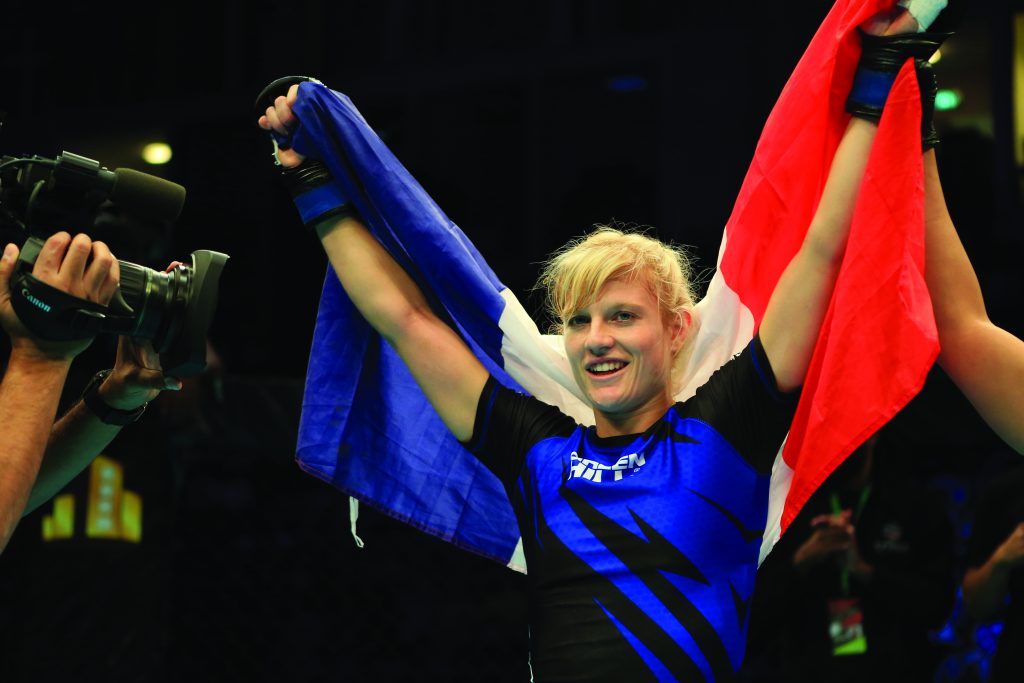On Wednesday, President of the French Judo Federation (FFDJA), Jean-Luc Rougé, a long standing opponent of MMA, issued a statement on the subject (see below).
This morning, Kerrith Brown, President of international MMA governing body, IMMAF – WMMAA, issued the following response:
IMMAF PRESIDENT KERRITH BROWN RESPONSE TO ROUGE COMMENTS ON MMA
“At IMMAF – WMMAA, we have been interested to hear Mr. Rougé’s most recent comments about MMA and welcome his expressed interest in possibly housing the sport under judo in France. As someone who has personally dedicated most of my life to judo, I alongside the IMMAF -WMMAA board, hold the sound structures and ethos of judo in high regard. We stand in agreement with Mr. Rougé on the importance of education, health and respect. We believe that the practice of well governed MMA fosters these values, and that we share a mutual cultural tradition and ethical values.
“However, we question Mr. Rougé’s assertion that he would like to see technical adjustments to our sport, since MMA already operates under its own complete and universal rule sets. These include the use of the Octagon (or ‘Safety Area’, as under IMMAF – WMMAA) as an integral part of the game for elite level competitors, protecting the integrity of a match as well as their safety. Further to this, IMMAF – WMMAA has been evolving technical education and competition pathways for participants from novice and youth levels up to elite amateur, which notably prohibit the use of head strikes for under 18s. I do not believe that Mr. Rouge would perceive anything controversial in our progression scheme or education guidelines, or on our competition platforms should he accept our invitation to attend and inspect all aspects.
“IMMAF – WMMAA also shares Mr. Rougé’s view that professional MMA should be regulated in order to safeguard the sport’s participants. He is right in citing variants in arbitration and safety standards across private MMA events for as long as the sport is unregulated – Indeed, top level professional promoters, such as UFC, uphold extremely high standards in medical safety and arbitration, but while the sport is outlawed it remains a Wild West at the grass roots, and our unrecognised governing bodies have not been empowered to tackle this.
“On behalf of the IMMAF – WMMAA board I would like to invite Mr. Rouge to attend our European Championships in Rome in June: Here he will be able to witness for himself our processes in athlete preclearance, onsite and post-match medical provisions, anti-doping, rules and regulations, officiating, inspection, hygiene control, equipment control, record-keeping and all other operational aspects. He will be able to speak freely with our athletes, their coaches, our volunteers, Medical Committee, officials, staff and representatives from our National Federations. I cannot see how on witnessing our elite Amateur MMA Championships first hand he could possibly continue to harbour his reservations. Our door is open.”
BACKGROUND:
Rougé on Values:
“The legislator must first question what sport is and what it is not…We must not limit this reflection only to MMA but also include military arts where we learn to kill and hurt as well as other violent combat sports, some of which are taught at large, and publicly in municipal sports halls. The impact on education, health and the values of respect for people, both physically and morally, must be assessed. Sports champions set an example to the youth, and their actions, actions and attitudes must be included in this education through sport. “
Rougé on Technicalities of MMA:
In the second point of his statement, Jean-Luc Rougé considered the integration of MMA into his federation: “Recreational MMA is not a problem. […] Our federation, with some technical adjustments can quite manage this activity with its clubs and teachers, and very quickly. With regards to “amateur” competitions, if we are free to define the technical content and the cultural and ethical aspects, we can also take care of them.”
Rougé on Professional MMA:
On the other hand, Jean-Luc Rougé expressed his opinion that, for professional fights, “it is quite otherwise”. “The fighting is organized by private companies that do not have, among them, the same requirements for medical checks and monitoring,” he explained. There are also variants in arbitration that can be important, especially when a fighter is in physical difficulty. If we were to integrate or support MMA, we would ask for the possibility of banning certain events. […] The State must decide on general rules to which all sports..must submit.”
See news report of Rouge’s statement at L’Equipe (French language):https://www.lequipe.fr/Judo/Actualites/La-federation-francaise-de-judo-clarifie-sa-position-a-propos-du-mma/1005374
]]>
